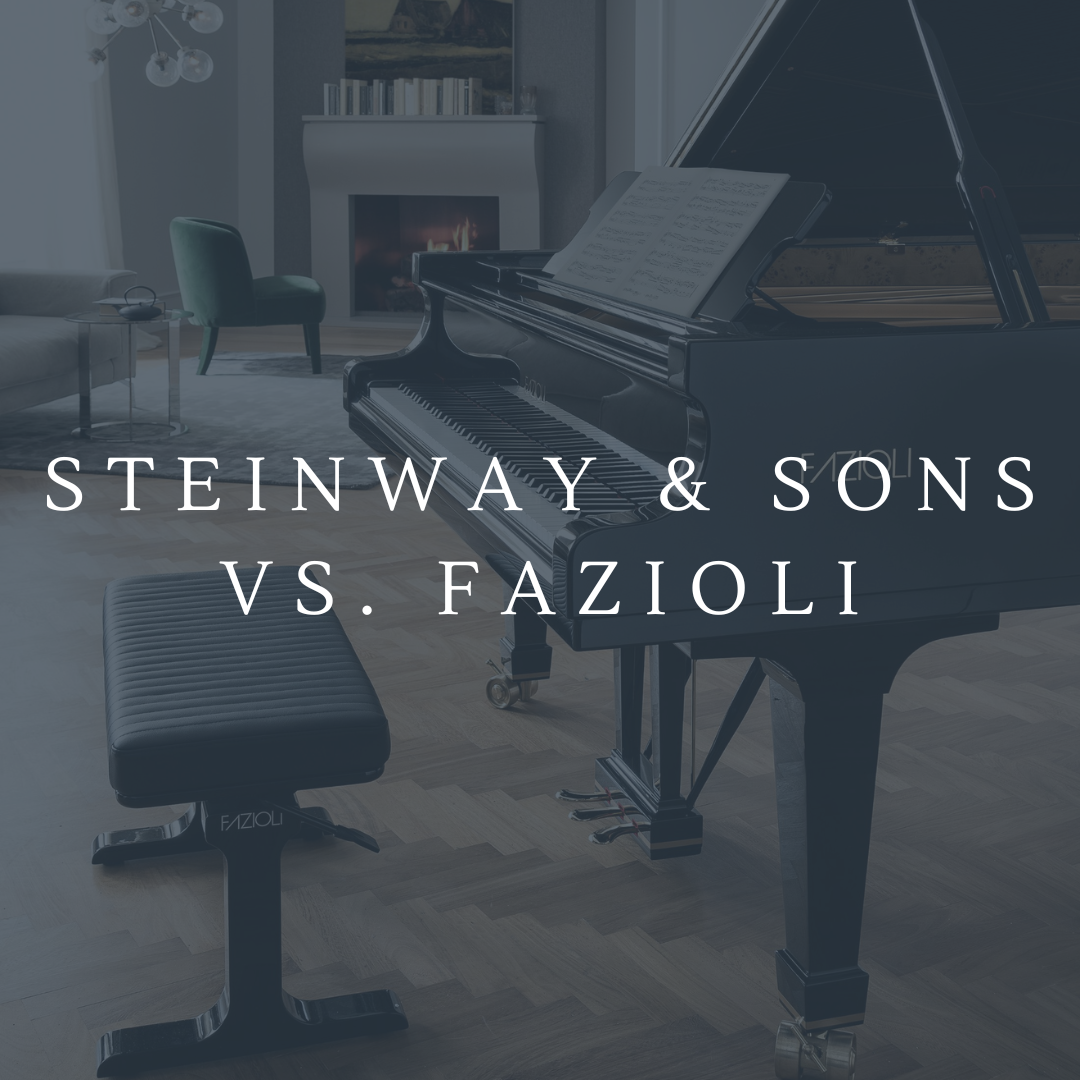
Common Mistakes People Make When Buying A Piano
Buying a piano can be a thrilling experience. However, if you are not careful, you could make a few of these mistakes:
Research: There is a lot of research that goes into buying a piano. There are multiple questions you will have to ask yourself. Do you want an acoustic piano or a digital one? Should you get a vertical piano or a grand piano? Should you go for a new piano or a used one? Finding the answers to these questions requires research.
Spend time researching to find a good (and that means also ethical) salesperson who will help you through this process by asking these important questions. Our goal is to educate, and you help you see all the options you have.
Long-term aspects: A piano can be considered as an investment and investments are not made for the short term. Do you want to buy a piano because you developed a sudden interest in the instrument or are you motivated to learn music and make something out of it? This question matters a lot because the answer tells you whether you should invest a lot on your piano or not. A cheap piano is better than none and a motivated student can learn on almost any instrument. However, when learning on a piano with a bad tone and uneven touch, the average or standard student is likely to lose interest.
Purchase a piano from a store that offers a.) a lifetime Trade Up
Policy at the full value of your piano and b.) has a wide variety of instruments in quality and price to trade up with. You might consider starting with a Casio Digital and when you feel that you are ready for the next level go for a Pre-Owned Certified upright. If you purchased your piano with us, your previous purchase will be fully credited to you with the return of the instrument in good condition.
Buy the store or the salesperson along with the piano: If a piano shopper does not know how to play, the salesperson will be asked to demonstrate the instruments. Because tone quality is subjective, non-players need the guidance of a demonstration to determine the tone and define preferences. Bear in mind that, while a good (and this includes ethical) salesperson will genuinely wish to assist you, there are plenty of stores that do not take care of their customers after the sale is completed. Make sure you feel good about the store and the salesperson in general and trust that they will take care of you.
Teacher’s advice: Piano teachers are an invaluable source of insight and advice. Use your teacher’s recommendation as to which piano is the best fit for you. Visit several stores and share your experiences with your teacher.
Looking for a cheaper deal: Although the desire to get a better deal on your first piano is understandable, you must be aware of the risks as well. A cheap piano could fit into your budget, but would it be ideal? If you want to learn and play a quality instrument, you might have to spend a little more money than you initially expected.
Buying too quickly: Buying a piano involves time, money, and space. There are various angles that need to be brought into consideration before you buy a piano. Most people do not put in the required amount of research or thought into the process and then end up regretting it. An instrument that was supposed to bring joy and create memories in your home should not become the cause of regret or pain. That is why it is advised to not buy a piano too quickly. Take your time with it and explore all your options.
When investing a lot of money, make sure you connect with the instrument. Oscar Peterson, the famed Jazz pianist, always joked that he spent the day with his first wife upstairs and the evening with his second wife (a Bosendorfer 290) downstairs.
Be aware of cost: While the Internet is awash with information about pretty much everything. There is relatively little reliable information available about the pricing of pianos. Most people go into the process of buying a piano with no idea of how much it should cost. Additionally, the price of the piano is not all you pay while buying one. The real cost of the piano would also include the cost of shipping.
Take maintenance and logistics costs into consideration: Buying a piano is not a one-time purchase deal. To maintain the quality and health of your piano, you must invest in its maintenance. Maintaining a piano does not come easy. Piano maintenance should occur at least once annually, although twice a year is ideal. Work with a technician recommend by the store and have him service your piano regularly.
Comments will be approved before showing up.


